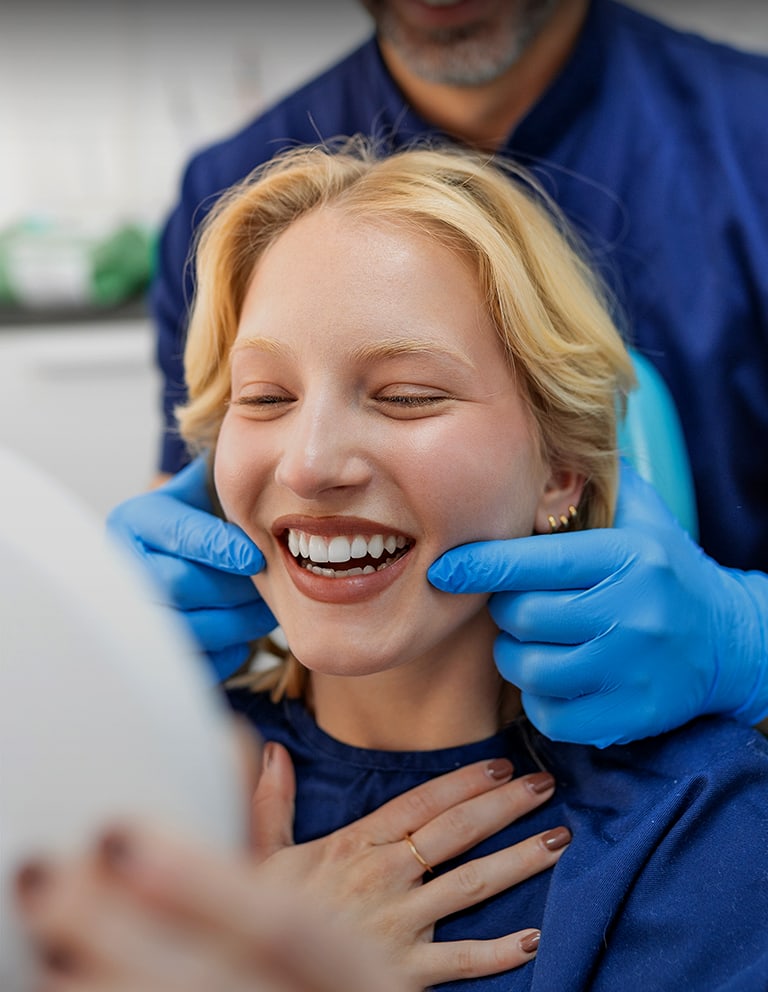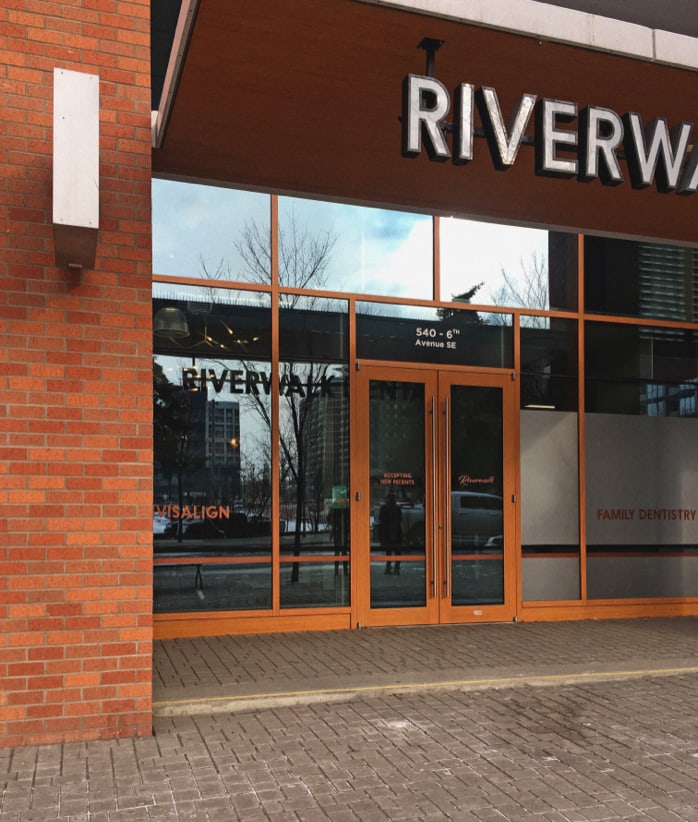Compassionate Care for Oral Surgery
Oral surgery might sound intimidating, but at Riverwalk Dental, it doesn’t have to be. Whether you need a simple tooth extraction, wisdom teeth removal, or a more complex procedure like bone grafting or jaw surgery, our experienced dental team is here to make the process as smooth, safe, and stress-free as possible.
We combine technology with personalized care to help you heal comfortably and get back to smiling sooner.
If you’re dealing with discomfort or damage or have been told you may need surgery, let’s talk. We’re here to answer your questions, walk you through your options, and help you feel informed every step of the way.
Reach out today to book a consultation or learn more about our oral surgery services.
Book AppointmentThoughtful Care That Respects Your Time
Oral surgery isn’t just about fixing a problem—it’s about helping you move forward with comfort. We know that surgery isn’t something most people look forward to, so we’ve built an experience that’s as smooth, stress-free, and respectful of your time as possible.
We take the time to explain your options clearly, walk you through every step, and provide follow-up guidance that actually fits into your life.

Wisdom Teeth Removal
Wisdom teeth are the final set of molars to appear, often emerging during the late teen years or early twenties. While some people have enough room for them to grow properly, many experience problems such as:
- Discomfort or swelling
- Fully or partially impacted teeth
- Infection due to trapped food and bacteria
Routine dental X-rays can help us assess the position of your wisdom teeth and decide whether removal is necessary. If extraction is recommended, our team will walk you through the process and your recovery plan, keeping you informed and comfortable.
Tooth Extractions
When a tooth is too damaged or decayed to repair, removal may be the best option to protect your oral health. Other reasons for extractions may include:
- Overcrowding or extra teeth interfering with proper eruption
- Orthodontic preparation for braces
- Risk of infection during immune-suppressing treatments (e.g. chemotherapy or organ transplants)
- Teeth within the radiation zone for cancer treatment
We perform extractions with care and precision. We will always discuss your treatment options beforehand to help you make the best decision for your health.
Extraction Site Preservation
After a tooth is removed, it’s important to address the empty space left behind. Missing teeth can cause bite changes, bone loss, gum issues, and difficulty chewing or speaking. To help preserve your oral structure and function, we’ll discuss replacement options like:
- Dental implants
- Fixed bridges
- Removable partial dentures
We’ll work with you to determine the best solution based on your unique needs.
Bone Grafting
In cases where the jawbone isn’t strong enough to support a dental implant or other restorative treatment, bone grafting may be recommended.
This procedure strengthens or builds up the bone, often using material from your own body or a safe, biocompatible source. Bone grafting can also support certain periodontal procedures and improve long-term treatment outcomes.
Orthognathic (Jaw) Surgery
Jaw misalignment can interfere with proper bite function and complicate orthodontic treatment. Orthognathic surgery, often performed by an oral and maxillofacial surgeon, corrects the structure of the jaw to support both function and aesthetics.
This procedure may involve repositioning the upper jaw (maxilla), lower jaw (mandible), or both, and is often done in collaboration with your orthodontist.
Facial Trauma Repair
Injuries to the face or jaw can be painful and disruptive. Our team is equipped to manage a range of facial trauma cases, including:
- Cuts and lacerations
- Broken or fractured facial bones
- Knocked-out or damaged teeth
Whether the procedure takes place in our office or at a local hospital, we’ll help you get the care and follow-up support you need for a smooth recovery.
Oral Pathology: Diagnosing Mouth Conditions
Oral pathology focuses on the diagnosis and treatment of diseases affecting the mouth, jaws, and facial structures. We may recommend additional tests or refer to a specialist for:
- Unexplained lesions or growths
- Persistent sores
- Abnormal tissue changes
Biopsies and modern diagnostics help us catch and treat issues early, protecting your overall health.
Personalized, Guided Care Every Step of the Way
Oral surgery doesn’t have to be overwhelming. At Riverwalk Dental, we prioritize your comfort and education. From consultation to recovery, our experienced team is here to support you with clear communication, innovative technology, and a compassionate approach.
Contact us to book your appointment today and find out more about your oral surgery options.
Book AppointmentServices That Cover
What You Need

Find Us in the Heart
of East Village
Come Visit Us
We are conveniently located in Calgary’s East Village. Swing by and visit the team today!
Where to park?
Street parking is available out front, and our team will happily cover the costs of your parking. Talk to our team for more information.
Our Address
- 540 6 Ave SE
- Calgary , AB T2G 1K5
Contact Information
- Phone: 403-456-4994
- Email: info@riverwalkdental.ca




